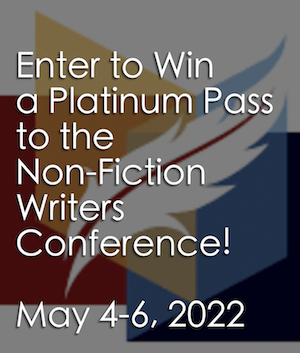Sponsored by The Nonfiction Authors Association.
Book Riot is teaming up with the Nonfiction Authors Association to give away one Platinum Access pass each to three lucky winners. The virtual conference takes place from May 4 -6, 2022. To enter, simply fill out the form and subscribe to the Nonfiction Authors Association newsletter for a chance to win!
Welcome to In The Club, a newsletter of resources to keep your book group well-met, well-read, and well-fed.
This past weekend I got cursed out by a dog. I was babysitting this super cute pittie, Blue, who likes cheese, naps, and nibbling on my hands (I know I’m a snack, but sis!). Blue is very particular about bed time and would take herself to bed promptly at 12 am. If she found that I was also not in bed at that time, but instead downstairs doing something like, I don’t know, watching TV, she’d come down to yell at me to get to bed. Apparently even dogs have better sleep schedules than me. *my father’s disapproval hums in the background*
I like house-sitting once in a while because it kind of feels like a mini vacation and gives me a chance to reset somewhat. Before my excursions with judgmental pitbulls, the last little get away I had was my (socially distanced) trip to the Poconos for Christmas, which led to me learning that it was part of the Appalachian Mountains. Turns out I don’t know much about the Appalachian region, but I’ve been seeing more books that take place in the area lately, and got curious. First off, I just realized I’m from there. Kinda. Once I started to investigate which areas constituted the region, East Tennessee was obviously counted, but Nashville was sometimes counted and other times it wasn’t. This may be because, although Nashville doesn’t have mountains that are apart of the system, the Nashville Basin is part of the Great Appalachian Valley.
Geographical technicalities aside, the area also has its own culture. One that I used to, and I think many others, have the wrong idea about. The expansive area stretches through thirteen states, including New York, Ohio, and Pennsylvania, and the culture has a mix of Indigenous, African, and European influences. It’s interesting to think of these states as having a similar sub culture. We know all too well about how people affect their physical environment, but what about the feedback we get from the environment? To me, the fact that Appalachian culture exists across states that are very different from each other otherwise suggests that our physical environments strongly influence our language and therefore our thought patterns, our food, how we dress, and everything else that can come to be thought of as a culture. The term “Affrilachia” refers to the ways Black people have contributed all of those things to the Appalachian way of life, and was coined by Frank X Walker to give visibility to the diversity of the area.
In today’s club, we’ll get into a few books that dispel stereotypes about the region.
Now, come on and git to the club!
Nibbles and Sips
 |
I started buying these bougie frozen pizzas from Lidl and I’m hooked! One of my favorites is a mascarpone and mushroom one, so I thought I’d try my hand at it. Alice gives some good directions on how to make one, website name notwithstanding, but I don’t think they’re too complicated overall.
For the topping: olive oil, mushrooms, spinach, red onion, mascarpone cheese (need a little less than a cup), and about 6 oz mozzarella
Instructions:
- preheat the oven to 350 F
- pre-cook veggies separately, but not all the way; I do this to take some of the water out of them
- Roll the dough out to form two 11 inch pizzas and put into oiled pan (I use a cast iron skillet); go ahead and rub a lil olive oil on the edges of that bad boy
- spread mascarpone on dough
- add veggies and mozzarella
- bake for 25-30 minutes, until crust is golden, etc. (you know the drill!)
Now for the books!
Make sure to get your own Read Harder Book Journal from Book Riot to track your reading for the year!
(Mostly) Affrilachian Lit
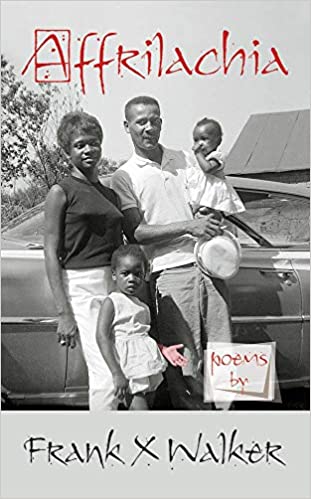
Affrilachia by Frank X Walker
This collection of poems is essential for a list like this. As I mentioned before, Walker came up with the label “Affrilachia” to give visibility to Black people from the region. With this collection, Walker distills his experiences as a creative growing up Black and male in Kentucky, thorough the medium of poetry, shining a light on another corner of the Black American experience.
Book Club Bonus: If you’ve read other poetry collections by Black people that are about their lives, how does this one differ? Everyone has different experiences, and we’re all our own people, but based on this collection, how do you think growing up in the region changes Black childhoods?
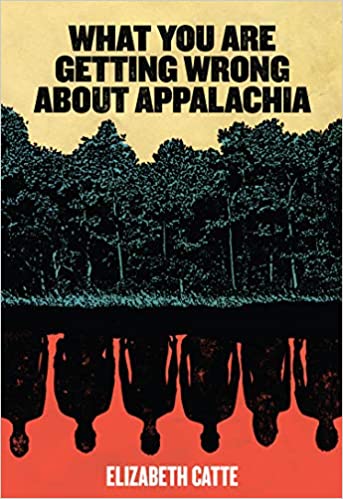
What You Are Getting Wrong About Appalachia by Elizabeth Catte
In response to Catte’s title, I say “a lot.” Catte read Hillbilly Elegy and felt some type of way, and with good reason. In this book, the East Tennessean historian shouts down the harmful stereotypes— like the idea that the region consists solely of white people with supremacist ideologies— espoused in J.D. Vance’s book. She counters Vance’s stereotypical portrayal of the area by showing how diverse it is, and even how many of the people leading the area’s progress are young minorities (while its problems are perpetuated by corporations). She also highlights the region’s activism and how there was great support for political candidates like Bernie Sanders during the 2016 presidential election. (She’s not Black, but I included her here because she’s a native of the region and talks about its diversity.)
Book Club Bonus: If anyone in your book club read Hillbilly Elegy by J.D. Vance, this would be a great opportunity to discuss Catte’s criticisms of it. Also, how do Catte’s descriptions of the area make you feel about it? Why do you think stereotypical views of it are so persistent?
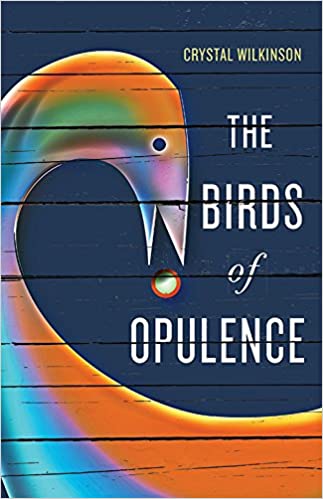
The Birds of Opulence by Crystal Wilkinson
Wilkinson drops us into a fictional town called Opulence located in the mountains of Kentucky. There, we follow several generations of women from two families as they struggle with mental illness, secrets, coming of age, womanhood, sexuality, and assault. We also see how the town both is both blessed and cursed by its mountainous surroundings. The writing is lyrical and poetic, as can be expected from a founding member of the Affrilachian Poets group and Kentucky’s Poet Laureate since 2021.
TW: s*xual assault
Book Club Bonus: I’ve seen the question asked before about why some Black people stayed in the South during the Great Migration, while around 6 million others moved north. How does this book answer that question?
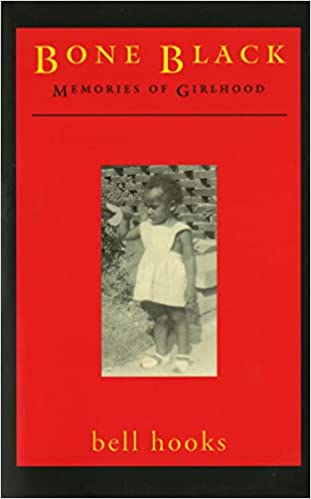
Bone Black: Memories of Girlhood by bell hooks
bell! The late iconic feminist writer bell hooks offers vignettes on what it was like growing up in the ’50s as a Black girl in the South. She tells how she realized at an early age the difference in gender roles, and how colorism and racism were enforced. She describes living in a household with a distant and sometimes physically abusive Father where she’s grappled with her own identity in relation to “… a rich magical world of southern black culture that was sometimes paradisiacal and at other times terrifying.” As a child, she was a loner but found solace in books, which, same Auntie bell, same. hooks also has a poetry collection titled Appalachian Elegy.
Book Club Bonus: bell alternates between first and third person for this book, which some might find to be odd. Discuss the choice of using third person for a memoir. What does it add and what does it take away? Do you think it’s a way to detach from the story or simply an artistic choice?
Don’t forget you can get three free audiobooks at Audiobooks.com with a free trial!
Suggestion Section
Looky here! Most Texans don’t even approve of politicians challenging books
Here are some of the most influential fantasy books of all time
Britney Spears Gets $15M for her Memoir
How Ursula Nordstrom helped make queer children’s books mainstream
 |
I hope this newsletter found you well, and as always, thanks for hanging out! If you have any comments or just want to connect, send an email to erica@riotnewmedia.com or holla at me on Twitter @erica_eze_ . You can also catch me talking more mess in the new In Reading Color newsletter as well as chattin’ with my new cohost Tirzah Price on the Hey YA podcast.
Until next time,
-E
